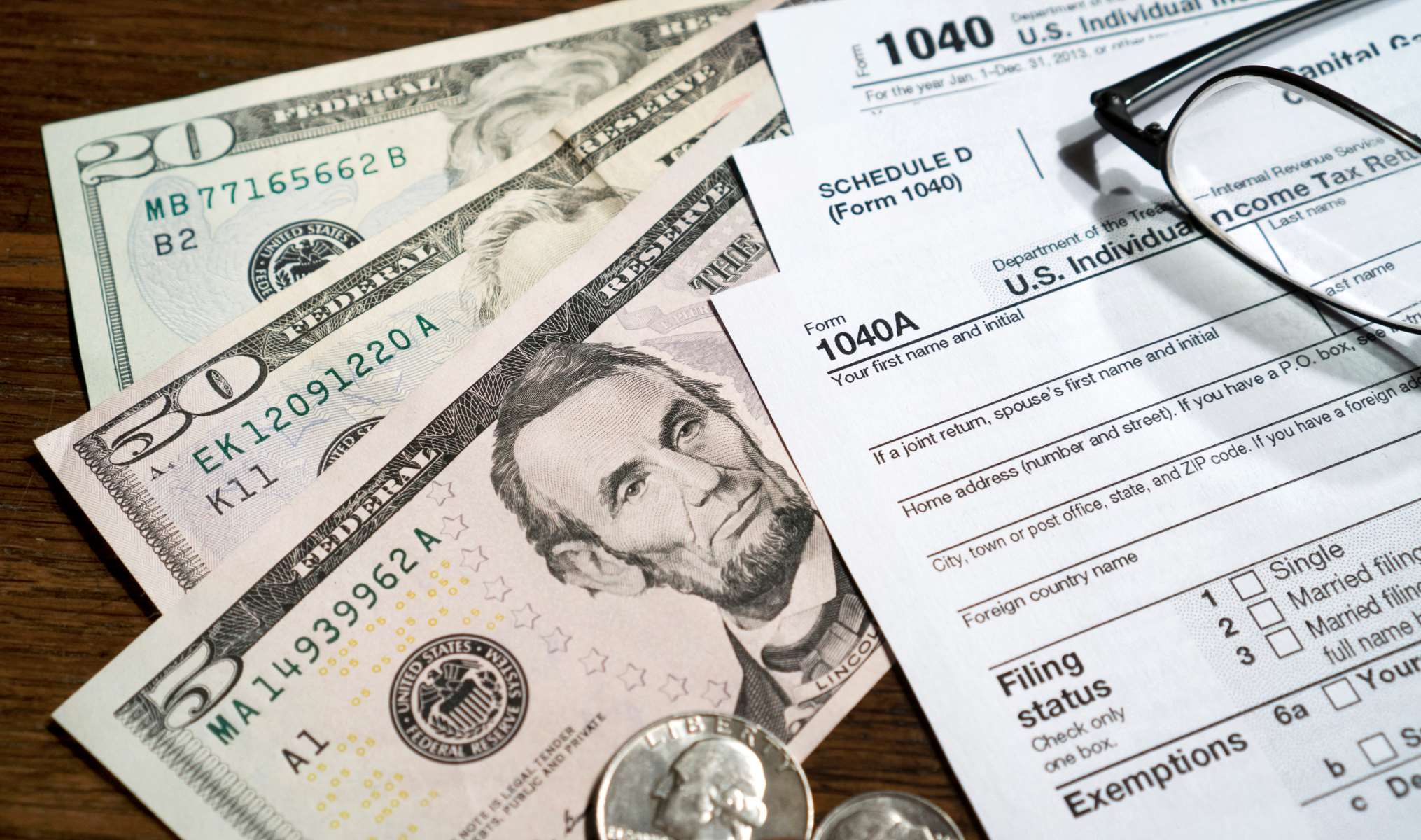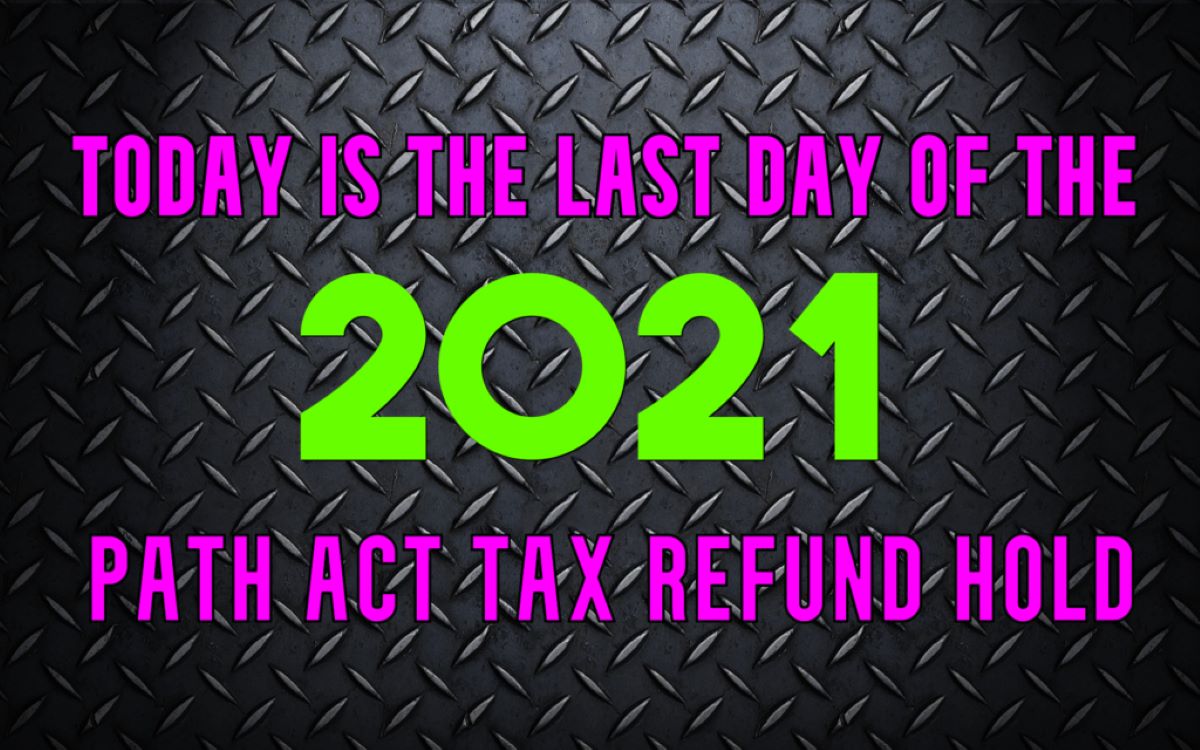

Finance
What Is A CFE In Accounting
Published: October 12, 2023
Learn about the role of a Certified Fraud Examiner (CFE) in accounting and how they contribute to financial security and integrity. Explore the importance of finance and uncover the world of financial fraud detection and prevention.
(Many of the links in this article redirect to a specific reviewed product. Your purchase of these products through affiliate links helps to generate commission for LiveWell, at no extra cost. Learn more)
Table of Contents
Introduction
Welcome to the fascinating world of forensic accounting! If you have a passion for numbers, a keen eye for detail, and a knack for solving puzzles, then pursuing a career as a Certified Fraud Examiner (CFE) in accounting might be the perfect fit for you.
Forensic accounting is a specialized field that combines accounting, auditing, and investigative skills to detect and prevent financial fraud. With the rise in corporate scandals and fraud cases, the demand for skilled professionals who can uncover financial wrongdoing has never been higher.
In this article, we will explore what it means to be a CFE in accounting, the benefits of becoming one, the education and certification requirements, job opportunities, skills and competencies needed, salary potential, as well as the challenges and drawbacks of pursuing this prestigious certification.
Whether you are a seasoned accountant looking to enhance your skillset or a student considering a career in accounting, this article will provide valuable insights into the world of forensic accounting and the exciting opportunities it offers.
Join us as we dive deep into the realm of CFEs in accounting and uncover the secrets behind the pursuit of financial truth.
Definition of a CFE in Accounting
A Certified Fraud Examiner (CFE) in accounting is a professional who specializes in detecting, investigating, and preventing fraud within financial systems. They are highly skilled in analyzing financial records, conducting interviews, and collecting evidence to expose fraudulent activities.
CFEs play a crucial role in both the public and private sectors, working for government agencies, financial institutions, consulting firms, and corporations of all sizes. Their main objective is to safeguard the integrity of financial transactions and protect organizations from the devastating consequences of fraud.
Unlike traditional accountants who primarily focus on financial reporting and compliance, CFEs go beyond the numbers. They possess a unique set of skills that enable them to identify red flags, patterns, and anomalies in financial data, allowing them to piece together the puzzle of fraudulent activity.
One of the key responsibilities of a CFE is to conduct forensic audits, which involve examining financial records, documents, and transactions to uncover evidence of fraud. They are trained to identify various fraud schemes, such as embezzlement, bribery, money laundering, and financial statement manipulation.
Another important aspect of a CFE’s role is to assist in the investigation and gathering of evidence in fraud cases. This may involve interviewing witnesses, analyzing documents, and working closely with law enforcement agencies to build a strong case against the perpetrators.
Furthermore, CFEs are often involved in implementing preventative measures and developing internal controls to deter fraud. They provide guidance and recommendations to organizations on how to strengthen their systems and processes, mitigating the risk of fraud occurrence.
In summary, a CFE in accounting is a highly skilled professional who specializes in uncovering financial fraud. They possess a unique combination of accounting knowledge, investigative skills, and a commitment to upholding ethical standards. The work of a CFE is invaluable in ensuring financial integrity and protecting organizations from the devastating effects of fraud.
Benefits of Becoming a CFE
Becoming a Certified Fraud Examiner (CFE) in accounting comes with a wide range of benefits and advantages that can greatly enhance your career prospects. Here are some of the key benefits of pursuing this prestigious certification:
- Expanded Career Opportunities: Obtaining a CFE certification significantly increases your marketability as a finance professional. Many organizations, both public and private, actively seek out CFEs to help prevent and detect fraud. With this certification, you open doors to exciting job opportunities in forensic accounting, internal auditing, risk management, and compliance.
- Prestige and Credibility: Being a CFE adds a sense of prestige and credibility to your professional profile. The rigorous certification process and adherence to the highest standards of ethics and professionalism demonstrate your commitment to combating fraud. This can lead to increased trust and recognition from employers, colleagues, and clients.
- Specialized Knowledge and Skills: The specialized training and knowledge gained through the CFE program equip you with a unique set of skills that are highly sought after in the industry. You develop expertise in fraud prevention, detection, and investigation techniques, as well as proficiency in forensic accounting software and tools.
- Strong Network: By becoming a CFE, you gain access to a vast network of professionals in the forensic accounting field. The Association of Certified Fraud Examiners (ACFE) offers networking opportunities, conferences, and forums where you can connect with like-minded individuals, exchange ideas, and stay updated on the latest trends and best practices.
- Higher Earning Potential: Due to the specialized nature of their work, CFEs often command higher salaries compared to their counterparts in general accounting. The demand for skilled fraud examiners is growing, and organizations are willing to invest in professionals who can protect them from financial losses caused by fraud.
Beyond these tangible benefits, becoming a CFE also offers the satisfaction of making a real impact in the fight against financial crime. With your expert knowledge and skills, you have the power to uncover fraud, protect businesses from monetary losses, and contribute to a more transparent and ethical financial environment.
Overall, the benefits of becoming a CFE are numerous and far-reaching. It opens doors to rewarding career opportunities, enhances your professional reputation, equips you with specialized skills, and allows you to make a meaningful difference in the world of finance.
Required Education and Certification
To become a Certified Fraud Examiner (CFE) in accounting, you need to meet specific education and certification requirements. Here is a breakdown of the steps involved:
Educational Background: While there is no specific degree requirement to become a CFE, a strong educational foundation in accounting, finance, or a related field is highly beneficial. Many CFEs possess a bachelor’s or master’s degree in accounting or a related discipline.
CFE Exam: The primary requirement for CFE certification is to pass the CFE Exam. This comprehensive exam consists of four sections covering fraud prevention and deterrence, financial transactions and fraud schemes, investigation methods, and legal elements of fraud. It tests your knowledge, understanding, and application of the principles and techniques used in fraud examination.
Experience: In addition to passing the exam, you must also have a minimum of two years of professional experience in a field related to fraud examination. Qualifying experiences include auditing, accounting, law enforcement, investigations, or other roles that provide a sufficient understanding of fraud-related activities.
ACFE Membership: To become a CFE, you need to join the Association of Certified Fraud Examiners (ACFE). Membership in this professional organization provides access to valuable resources, networking opportunities, and continuing education programs to enhance your knowledge and skills in the field of fraud examination.
Continuing Education: To maintain your CFE certification, you must fulfill ongoing continuing professional education (CPE) requirements. This ensures that CFEs stay up-to-date with the latest developments in fraud examination and maintain their professional competence.
The CFE certification is recognized and respected globally as a benchmark for excellence in the field of fraud examination. It demonstrates your commitment to ethical standards and your ability to effectively address the challenges posed by financial fraud.
It is worth noting that the requirements for becoming a CFE may vary depending on your country or region. It is recommended to visit the ACFE website or consult with a local chapter to get specific information and guidance on the certification process in your area.
By successfully completing the necessary education and certification requirements, you will be well on your way to becoming a Certified Fraud Examiner and embarking on an exciting and rewarding career in forensic accounting.
Job Opportunities for CFEs
As a Certified Fraud Examiner (CFE) in accounting, you can enjoy a wide range of job opportunities across various industries and sectors. The demand for CFEs has been steadily growing as organizations recognize the need for experts who can detect and prevent financial fraud. Here are some of the potential career paths for CFEs:
- Forensic Accountant: Many CFEs work as forensic accountants, specializing in investigating financial records to uncover fraudulent activity. They assist in litigation support, provide expert testimony, and help organizations develop effective fraud prevention strategies.
- Internal Auditor: CFEs are highly valued in internal audit departments, where they contribute their fraud examination expertise to assess the effectiveness of internal controls and detect any irregularities or fraud within an organization.
- Corporate Investigator: CFEs often work as corporate investigators, either as part of an organization’s internal investigative team or for consulting firms specializing in fraud investigations. They conduct interviews, gather evidence, and provide recommendations for remediation.
- Risk Management Specialist: CFEs are equipped with the skills to identify and assess risks related to financial fraud. They play a crucial role in developing and implementing risk management strategies, helping organizations mitigate the potential impacts of fraud.
- Compliance Officer: CFEs are well-suited for roles in compliance, ensuring that organizations adhere to ethical standards, laws, and regulations. They establish and monitor internal control systems, conduct audits, and provide guidance on fraud prevention measures.
- Government Agencies: Many CFEs find employment in government agencies such as the Federal Bureau of Investigation (FBI), Internal Revenue Service (IRS), and various regulatory bodies. They assist in fraud investigations, financial crime prevention, and the enforcement of anti-fraud laws.
- Consultant: CFEs have the option to work as independent consultants, offering their expertise in fraud examination and prevention to organizations on a project basis. This allows for flexibility and the opportunity to work on a variety of challenging assignments.
These are just a few examples of the diverse career paths available to CFEs. The skills and knowledge gained through the certification process make CFEs valuable assets in any organization seeking to protect itself from financial fraud.
It is worth noting that the job title and responsibilities may vary depending on the organization and industry. Some CFEs may specialize in specific areas such as healthcare fraud, insurance fraud, or cybercrime, while others may work in a broader capacity across different sectors.
The demand for CFEs is expected to continue to grow as organizations place greater emphasis on fraud prevention and detection. With your CFE certification, you can explore exciting job opportunities and make a significant impact in the fight against financial fraud.
Skills and Competencies of a CFE
To excel as a Certified Fraud Examiner (CFE) in accounting, you need to possess a combination of specialized skills and competencies. Here are some of the key skills that make a CFE effective in combating financial fraud:
- Analytical Skills: CFEs must have strong analytical abilities to examine financial records, identify patterns, and detect anomalies that may indicate fraudulent activity. They must be able to analyze complex data, think critically, and make sound judgments based on their findings.
- Investigative Skills: CFEs need to be skilled investigators, capable of gathering evidence, conducting interviews, and using various investigative techniques. They must have the ability to follow the money trail, uncover hidden assets, and track financial transactions to build a strong case against fraudsters.
- Accounting and Auditing Knowledge: A solid understanding of accounting principles and auditing procedures is essential for CFEs. They need to be proficient in financial statement analysis, internal controls, and auditing techniques to effectively assess the accuracy and reliability of financial records.
- Knowledge of Fraud Schemes: CFEs must possess in-depth knowledge of different types of fraud schemes, such as billing fraud, corruption, money laundering, and financial statement fraud. Understanding the methods and tactics used by fraudsters allows CFEs to identify red flags and patterns indicative of fraudulent activity.
- Legal and Regulatory Knowledge: CFEs should have a solid understanding of relevant laws, regulations, and legal procedures related to fraud. This knowledge helps them navigate the legal aspects of their investigations, collaborate effectively with law enforcement agencies, and ensure that the evidence they collect will withstand legal scrutiny.
- Communication Skills: CFEs need to be effective communicators, both orally and in writing. They must be able to present complex financial information in a clear and concise manner, prepare detailed reports, and deliver expert testimony when required.
- Ethics and Professionalism: CFEs must adhere to the highest ethical standards and ethical conduct. They must demonstrate integrity, objectivity, and professionalism in their work, as they often deal with sensitive and confidential information.
- Attention to Detail: Given the intricate nature of financial fraud, CFEs must have a meticulous eye for detail. They need to be thorough in their examination of financial records, ensuring that no piece of evidence or potential red flag goes unnoticed.
These skills and competencies form the foundation of a successful CFE. It is important to continuously develop and enhance these skills through ongoing education, training, and professional development opportunities to stay current with the evolving landscape of financial fraud.
Becoming a skilled CFE requires a combination of technical knowledge, investigative acumen, and a commitment to upholding ethical standards. By honing these skills, you can excel in preventing, detecting, and investigating financial fraud, making a significant impact in the field of forensic accounting.
Salary Potential for CFEs
The salary potential for Certified Fraud Examiners (CFEs) in accounting can vary depending on factors such as experience, location, industry, and job responsibilities. However, being a CFE can offer attractive earning opportunities due to the high demand for professionals with expertise in fraud prevention and detection.
According to the 2020 Compensation Guide by the Association of Certified Fraud Examiners (ACFE), CFEs tend to earn higher salaries compared to non-certified professionals in the accounting or auditing field.
In the United States, the median salary for CFEs is around $82,000 per year. However, this figure can vary significantly based on factors such as years of experience, job title, and geographic location. CFEs with several years of experience and in senior-level positions can earn well above the median salary.
It is important to note that the salary range for CFEs extends beyond the median figure. Experienced CFEs working in areas such as forensic accounting, risk management, and corporate investigations may command salaries in the six-figure range.
Industry also plays a role in determining salary levels. CFEs employed in financial services, consulting firms, and corporate sectors often enjoy higher salary packages compared to those in non-profit or government organizations. Similarly, working in major metropolitan areas or regions with a high cost of living may lead to higher compensation.
Aside from base salaries, CFEs may also receive additional compensation in the form of bonuses or incentives based on performance, contributions to fraud prevention, or successful resolution of fraud cases.
Furthermore, as CFEs gain experience and build a solid reputation in the field, they may have opportunities to advance into management or leadership roles, which can further increase their earning potential.
Overall, the salary potential for CFEs is promising, with opportunities for both competitive base salaries and potential for growth. To maximize earning potential, CFEs should continuously enhance their skills, stay updated with industry trends, and pursue ongoing professional development to remain valuable assets in the fight against financial fraud.
Challenges and Drawbacks of Pursuing a CFE Certification
While pursuing a Certified Fraud Examiner (CFE) certification can be highly rewarding, it is important to be aware of the challenges and drawbacks that may arise along the way. Here are some of the common challenges faced by individuals pursuing a CFE certification:
- Rigorous Certification Process: Achieving CFE certification requires a significant commitment of time, effort, and resources. The certification process includes passing a comprehensive exam, meeting experience requirements, and fulfilling continuing education obligations. Balancing these requirements with work and personal commitments can be challenging.
- Intense Competition: As the demand for CFEs continues to rise, the competition in the job market can be fierce. Employers often seek candidates with a combination of experience, education, and certification. It may require persistence and strategic planning to stand out among other qualified applicants.
- Continuous Learning: The field of fraud examination is constantly evolving, and staying up-to-date with the latest techniques, regulations, and fraud schemes requires ongoing learning. CFEs must actively pursue continuing education to maintain their certification, which requires a commitment to lifelong learning and professional development.
- High Ethical Standards: CFEs are held to the highest ethical standards, as they deal with sensitive information and potential legal implications. Upholding these standards can present challenges, especially when faced with ethical dilemmas or pressures to compromise integrity.
- Emotional Toll: Investigating financial fraud can be emotionally challenging. CFEs may come across cases involving deception, fraudsters, and the impact of financial crimes on victims. Dealing with such situations requires emotional resilience and the ability to compartmentalize personal emotions.
- Workload Demands: Depending on the industry and the nature of the job, CFEs may face heavy workloads, tight deadlines, and long hours, especially during fraud investigations or peak periods. This can lead to increased stress levels and a need for strong time management skills.
- Job Complexity: Fraud examination involves complex financial transactions, legal considerations, and investigative techniques. CFEs must possess a solid understanding of these complexities and continuously update their knowledge and skills to effectively navigate and solve intricate fraud cases.
While these challenges exist, they should not deter individuals from pursuing a CFE certification. With proper planning, dedication, and perseverance, the benefits and opportunities that come with being a CFE often outweigh the challenges faced along the way.
It is important to approach the journey of becoming a CFE with a growth mindset, embracing the challenges as opportunities for personal and professional development. By addressing these challenges head-on, CFEs can build rewarding and fulfilling careers in the field of forensic accounting.
Conclusion
In conclusion, pursuing a career as a Certified Fraud Examiner (CFE) in accounting can lead to a fulfilling and rewarding professional journey. CFEs play a crucial role in the detection, prevention, and investigation of financial fraud, making them highly sought after in various industries and sectors.
Throughout this article, we have explored the definition of a CFE, the benefits of becoming one, the required education and certification, job opportunities, skills and competencies needed, salary potential, as well as the challenges and drawbacks that come with pursuing a CFE certification.
Obtaining a CFE certification opens up a world of opportunities, with expanded career prospects in forensic accounting, internal auditing, risk management, compliance, and more. It enhances your marketability, credibility, and earning potential, while providing access to a strong professional network.
However, pursuing a CFE certification comes with its own set of challenges, including a rigorous certification process, intense competition, continuous learning requirements, and ethical responsibilities. It requires dedication, resilience, and a commitment to upholding the highest ethical standards in the fight against financial fraud.
Despite these challenges, the rewards of becoming a CFE are significant. CFEs have the opportunity to make a real impact in preventing and detecting fraud, protecting organizations from financial losses, and contributing to a more transparent and ethical financial environment.
If you have a passion for numbers, an eye for detail, and a desire to uncover the truth behind financial wrongdoing, pursuing a career as a CFE may be the perfect fit for you. It is a dynamic field that combines accounting expertise, investigative skills, and a commitment to ethics, providing endless opportunities for growth, professional development, and making a meaningful difference.
So, embark on the journey to become a Certified Fraud Examiner, and unlock the doors to an exciting and fulfilling career in the fascinating world of forensic accounting.














